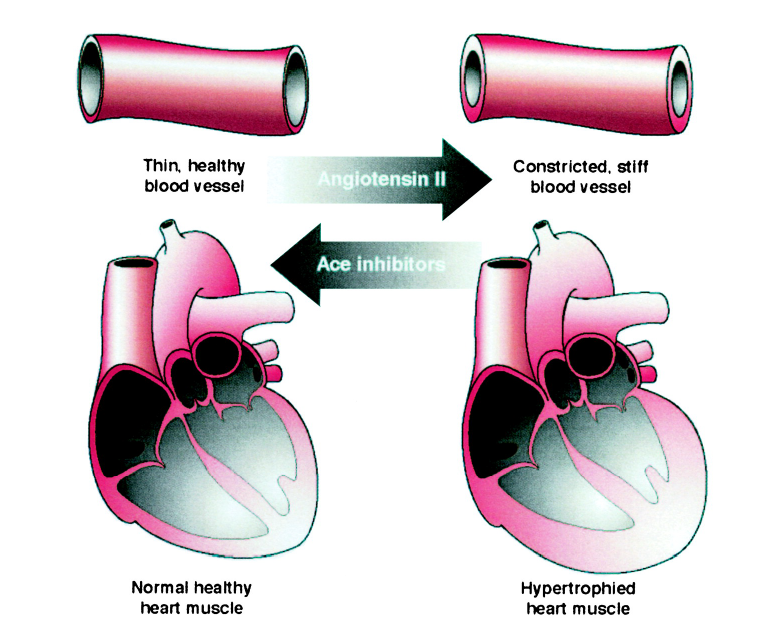ACE inhibitors, also known as angiotensin-converting enzyme inhibitors, are a class of medications commonly prescribed for the treatment of various cardiovascular conditions. They work by inhibiting the activity of an enzyme called angiotensin-converting enzyme, which plays a significant role in regulating blood pressure and fluid balance in the body. In this edition of the Know Your Heart Series, we will look into the mechanism of action, uses, and potential side effects of ACE inhibitors.
Mechanism of ActionACE inhibitors exert their pharmacological effects by blocking the activity of angiotensin-converting enzyme. This enzyme is responsible for converting angiotensin I, a hormone produced by the liver, into angiotensin II. Angiotensin II is a potent vasoconstrictor, meaning it narrows the blood vessels, leading to an increase in blood pressure. Additionally, angiotensin II stimulates the release of another hormone called aldosterone, which promotes the retention of sodium and water, further contributing to fluid retention and increased blood pressure.

By inhibiting angiotensin-converting enzyme, ACE inhibitors prevent the conversion of angiotensin I to angiotensin II. As a result, blood vessels remain relaxed and dilated, reducing resistance to blood flow and lowering blood pressure. ACE inhibitors also decrease the secretion of aldosterone, leading to a reduction in fluid retention and overall blood volume.
Uses of ACE InhibitorsACE inhibitors are primarily prescribed for the treatment of hypertension, commonly known as high blood pressure. By lowering blood pressure, these medications help reduce the strain on the heart and blood vessels, thus reducing the risk of cardiovascular events such as heart attacks and strokes. ACE inhibitors may be used as the initial choice or in combination with other antihypertensive medications, depending on the patient’s condition.
In addition, ACE inhibitors have proven to be beneficial in managing various other cardiovascular conditions. They are commonly prescribed for individuals with heart failure, as they help improve symptoms, enhance cardiac function, and prolong survival. Additionally, these medications are used in certain cases of diabetic kidney disease, where they can help slow the progression of kidney damage.
Potential Side EffectsWhile ACE inhibitors are generally considered safe and well-tolerated, like any medication, they can cause side effects. Common side effects include a persistent dry cough, which can be bothersome for some individuals. This cough is thought to be a result of the accumulation of a substance called bradykinin, which is normally broken down by angiotensin-converting enzyme. However, in the presence of ACE inhibitors, bradykinin levels increase, leading to the cough.
Other potential side effects of ACE inhibitors may include dizziness, headache, fatigue, gastrointestinal disturbances, and skin rash. In rare cases, individuals may experience angioedema, a severe allergic reaction characterized by swelling of the face, lips, tongue, or throat. This is a serious condition and requires immediate medical attention.
ConclusionACE inhibitors are a class of medications commonly prescribed for the treatment of hypertension, heart failure, and certain kidney conditions. By inhibiting the activity of angiotensin-converting enzyme, these medications help lower blood pressure, improve cardiac function, and reduce the risk of cardiovascular events. While generally safe, they may cause side effects such as a persistent dry cough. It is crucial to follow the prescribed dosage and consult a doctor for guidance and monitoring when using ACE inhibitors or any other medication.
